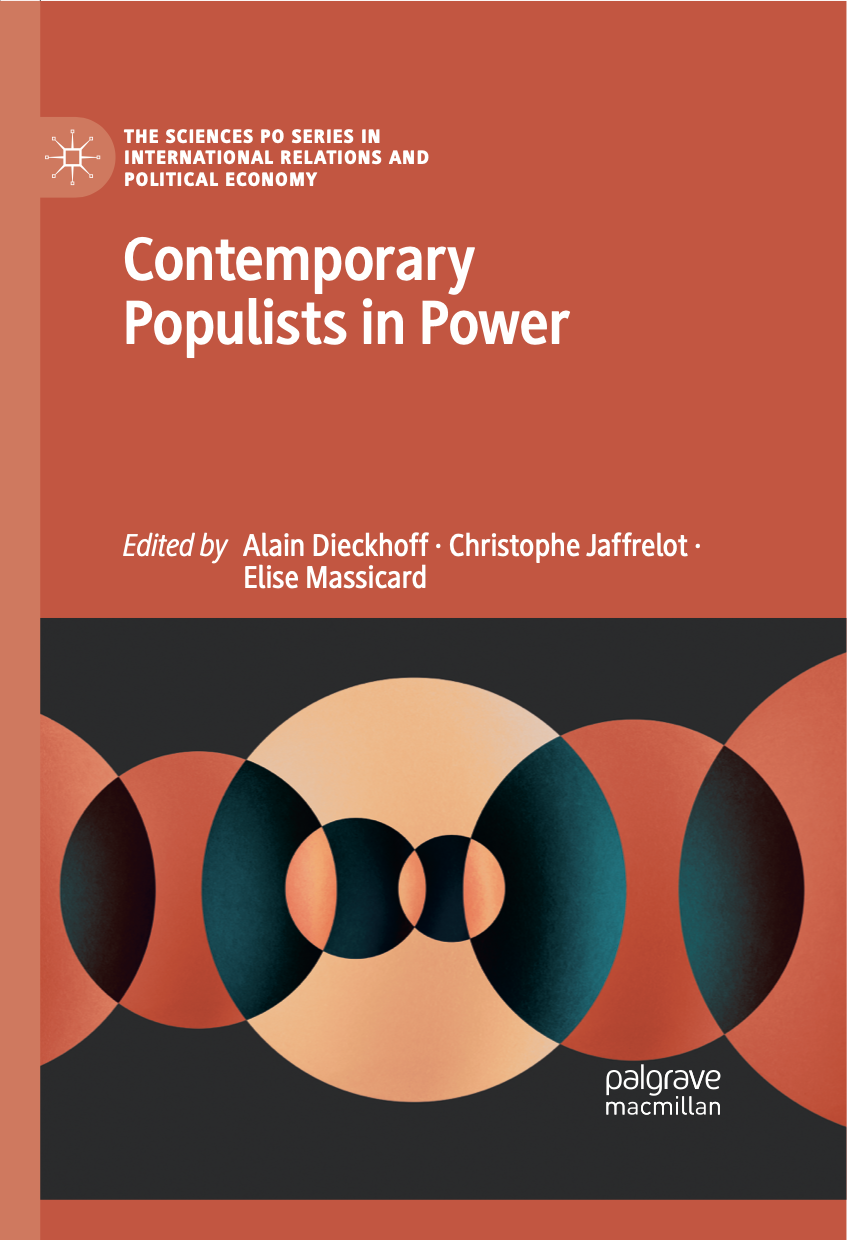Contemporary Populists in Power - Alain Dieckhoff, Christophe Jaffrelot, Elise Massicard (eds)

New York, Palgrave Macmillan (Sciences Po Series in International Relations and Political Economy), 2022.
Populism is on the rise, and so are academic studies on populism. The study of populism has long focused on the way its spokespersons have behaved as an oppositional force, in Western countries in particular. While discourses and practices of populists exercising a protest function still merit attention, this volume trains the focus on populists in government. The real novelty of the past decade is that many populists are now (or have been) in power, in Europe as well as in other parts of the world, and this book intends to play a pioneering role from a geographical and analytical standpoint. Besides Europe and Latin America, where populism is well established, populists are today—or have been recently—in office in the Middle East (Turkey, Israel), Asia (India, Thailand, the Philippines, Pakistan, Sri Lanka), and the United States. In most of the cases, their rule has resulted in forms of authoritarianism, giving birth to a new kind of regime that combines elections—which populists need to nurture their legitimacy—and attacks against institutions in charge of checks and balances, including the judiciary. While most of the populist rulers have consolidated their power, democratic resilience has prevailed in some rare cases.










